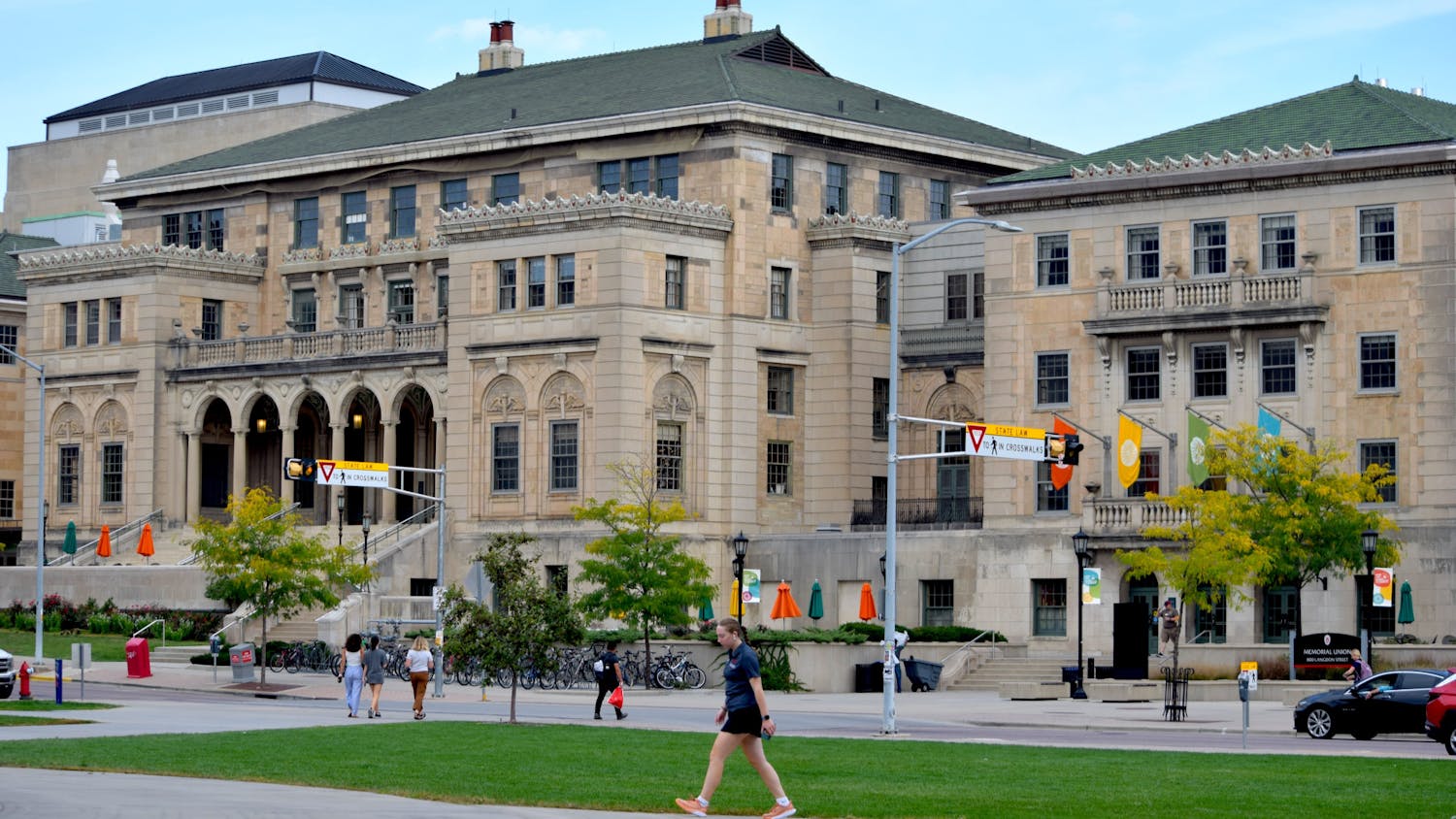On my second day of class, I found myself walking past the Starbucks on State Street. However, it wasn’t the enticing aroma of coffee that drew me but the scores of baristas rallying around the front door. They were armed with signs and powerful stories of working early mornings and long afternoons for a company working to restrict their healthcare and leaving them consistently understaffed.
Starbucks is one of State Street's most popular businesses and the busiest Starbucks in Wisconsin. Every morning, a line of weary coffee seekers seeps out the door as students flock to open tables to study for exams.
Beneath this facade is a corporation committed to their bottom line above all else.
Starbucks had eight to ten employees working at the State Street location’s espresso bar at this time last year. Now? They’re lucky to get four.
Despite serving a high volume of customers that often exceeds 150 transactions within 30 minutes, these employees found themselves working with only a handful of colleagues.
This staffing shortage translates into increased workloads, diminished breaks and compromised customer experiences. The pressure of rushing to maintain customer service metrics, like mobile order wait times, often left little time for training new employees and other essential tasks.
Additionally, State Street workers recount stories that reflect blatant corporate opposition to unionization within Starbucks, a claim reinforced by multiple federal rulings against the company involving unlawful employee terminations.
Trapped in a web of systemic misconduct, the coffee behemoth has indeed found itself on a precarious ledge, exacerbated by the fact that the National Labor Relations Board (NLRB) issued over 80 complaints against Starbucks for violating federal workers' rights laws.
These actions, including managerial surveillance, coercive questioning and intimidation tactics, impede workers' freedom to organize and advocate for better working conditions.
According to the NLRB’s website, supervisors and managers cannot spy on workers or even appear to do so, coercively question workers, threaten or bribe workers regarding union activities of your co-workers. You can’t be fired, disciplined, demoted or penalized in any way for engaging in union activities.
The reality portrayed by the State Street employees tells a different tale.
According to one of the employees I spoke with, their general manager (GM) was rarely seen within the store, making an appearance only about once a month.
But following the vote to unionize, a stark change swept over. The once absent GM started frequenting the store. In an attempt to adhere to Starbucks’ so-called “Standard of Wisconsin Excellence,” the GM took matters into their own hands, stripping the store of its Pride flags and a much-loved Starbucks mug wall.
Uneasiness set in, turning coffee stories a little more bitter. The striking workers voiced their demand for a fair living wage, emphasizing that every worker deserves dignity and adequate compensation for their labor. While Starbucks' starting wage is $15 per hour, they argue that a true living wage in Wisconsin is closer to $22.
Other companies in the state and other companies on State Street have recognized this and offer higher starting wages, further highlighting Starbucks' reluctance to prioritize employee well-being. By offering stable hours and decent pay, Starbucks could attract and retain a motivated and dedicated workforce.
As the baristas stir the topic, signs of a richer and stronger debate are simmering underneath the surface. My conversations then took a turn toward the important facet of health and safety.
To qualify for healthcare benefits at Starbucks, workers must average 20 hours per week, a benchmark that management has allegedly manipulated by cutting workers' hours below the threshold.
The sardonic humor traced in the workers' voices is hard to miss as they narrate the catch-22 of Starbucks' healthcare policy. Hover under the 20-hour average, and you have no healthcare coverage. Exceed it, and you lose hours.
Access to healthcare is a fundamental right, and a company as prosperous as Starbucks has the resources to ensure that its workers can access affordable and comprehensive healthcare.
Workers’ elocution continues to unveil a stage littered with substandard conditions, with employees pointing out the need for better maintenance and resources. And their asks are simple — functioning ice machines and sharps kits in the bathroom to address clogged toilets and growing safety concerns.
The latent force of unionized labor is evident in their eyes, their words echoing the promise of shifting power dynamics, transparent conversations and accountable management. It's their resilience against the backdrop of worn-out interactions that accentuates the importance of collective action.
In hindsight, the tempest in our coffee cups is impossible to ignore. The Madison State Street Starbucks strike is a melting pot of unserved justice, overlooked duties and untapped potential.
The echo of striking workers is a potent call for corporations to underscore social and economic justice, much beyond pedaling it as a selling point. When these requirements are served, Starbucks, and similar corporations, can foster a workspace that genuinely values its employees.
Until then, our coffee stories will continue to be grounded in the realities of labor struggles, serving as stark reminders of the work yet to be done. Together, let's stand with the workers to amplify their voices as they demand rights and challenge the status quo.
May our conversations brew the change we wish to see.
Owen Puckett is a staff writer and a junior studying political science. Do you agree Starbucks’ labor practices are unfair? Send all comments to opinion@dailycardinal.com






